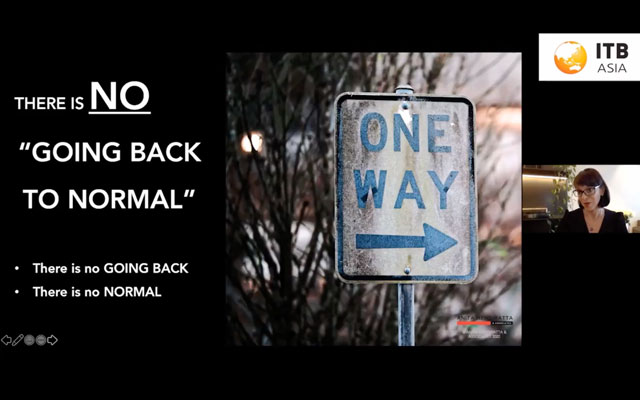As countries cautiously restart their tourism engines and airplanes return to the skies, Asia-Pacific is set to be the first region in the world to rebound, which will provide a blueprint for post-Covid recovery.
“If we look at which regions are going to be at the forefront of (the) recovery momentum, Asia-Pacific is ahead of the race. Reason being, firstly, (it has) a great deal of regional travel. There is a lot of hopping within countries, and across regional countries,” said Anita Mendiratta, special advisor to secretary general, The UN World Tourism Organization.

“And, Asia-Pacific was the first to experience the pandemic. (It is) getting through it first, (showing) the rest of the world what recovery will look like.”
Speaking at the ITB Asia 2020 Virtual session, titled The Future of Travel Post-Covid-19, Mendiratta quashed any notions of a return to normalcy, instead dubbing the new world of travel as the “next normal”, where uncertainty abounds in light of recurring waves, and the many questions surrounding a Covid-19 vaccine.
In this climate of uncertainty, destinations have to adapt to new ways of working and connecting with travellers for tourism recovery to gather pace.
Noting that at the height of the pandemic, 16,000 aircraft were grounded around the world, Mendiratta said that airlines now need to determine route profitability and where the demand lies, while also accessing stability risks in terms of the virus to prevent future groundings.
She also cautioned destinations against growing lax with safety protocols. “The protocols are critical; they are part of the experience that we must now accept as the future of travel, particularly, in a post-Covid-19 world,” she stressed.
Noting that the need for space will sway future travel decisions, she said destination marketers need to “(unlock) areas in destinations that have really not been discovered before – places that are more remote, less densely populated, allowing dispersion”.
With trust hailed as the new currency for tourism marketing, she also reiterated the critical importance of communication in managing traveller expectations and giving them peace of mind.
“Now is the time for communication, not campaigns. Destinations, airlines, airports, attractions can all speak to travellers, but speak to them as equals, focusing on why – not where – they are travelling.
“Create that connection now, so that when they are ready to travel, they know that there is a place and there are people looking forward to seeing them,” concluded Mendiratta.




















